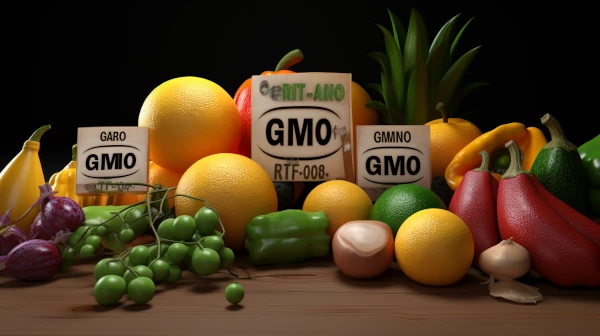In today’s conscious society, political correctness often discourages the use of labels. However, when it comes to our food, labels provide essential information. Though current food packaging already displays the number of calories and fat contents, it’s only a small part of the whole story. Many people are still unaware that they’re consuming genetically modified organisms (GMO) engineered in a laboratory.
GMO refers to the alteration of plants and animals at the genetic level. The technology involves splicing genes and merging DNA from different species of plants or animals, including bacterial and viral genes. The result is new and unstable organisms that do not occur in nature. Consequently, our planet and bodies don’t know how to handle them, as we lack the capacity to break down, digest, and assimilate these unfamiliar organisms.
As the GMO food industry continues to grow, our health has been significantly affected. Recent decades have seen increased rates of obesity, sickness, frailty, and allergies. GMOs were initially intended to resist the direct spraying of insecticides and herbicides in farming. The pesticidal chemicals used to preserve crops have seeped into the food supply, and Americans are now consuming food mixed with substances meant to kill living organisms.
Although countries worldwide have banned GMOs, the United States still allows them in the food supply chain. Moreover, the US government does not require farmers and vendors to inform citizens that their food is genetically modified, largely due to lobbying in Washington.
Various foods in our grocery stores are now at risk of being genetically modified or contaminated, including alfalfa, corn, canola, eggs, flax, honey, cotton, papaya, soy, rice, sugar beets, zucchini, yellow squash, meat, and milk. Additionally, products derived from these crops, such as amino acids, vitamin C, lactic acid, yeast products, ethanol, aspartame, and high fructose corn syrup, may also be GMO. To ensure your personal safety, it’s best to only consume items labeled “organic.”
While there are rules and regulations for a food to be deemed “Certified USDA Organic,” there are no regulations to cover conventional non-GMO foods. As a result, many Americans unknowingly purchase “all-natural” and genetically modified foods that are potentially harmful to their minds and bodies. Most recently, California voters rejected Proposition 37, which would have necessitated the label “genetically engineered” on all genetically modified food products.
In a democratic society, citizens have the right to make informed decisions. The absence of required GMO labeling deprives us of that choice and keeps us uninformed about the food we consume. This can have considerable consequences on our health and well-being.
Until a GMO labeling bill is passed in your state, it’s best to avoid GMO food. Choosing organic is the safest option, and doing research on the food available in your area can help you make the best decision.
By consuming genetically modified foods, we risk becoming genetically modified humans ourselves. Although this may be an exaggeration, the risks involved are very real. Be sure to take action and stay informed by making the best choices available to you.



